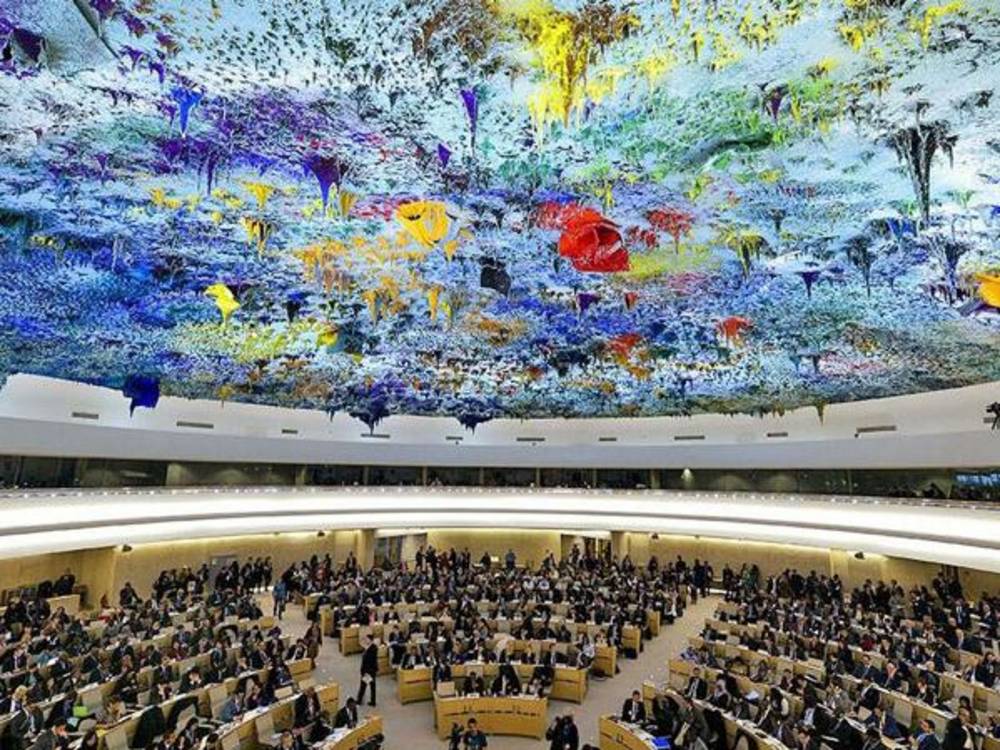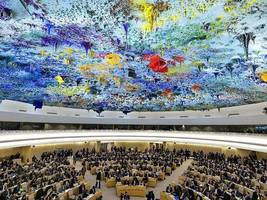The Human Rights Ombudsman of the Republic of Slovenia (Ombudsman) has prepared a contribution for the fourth cycle of the Universal Periodic Review (UPR), which takes place within the framework of the United Nations Human Rights Council. Slovenia will be re-examined within the framework of the 48th meeting of the UPP working group, which will take place in January and February 2025. You can read more about the UPP at the end of this post.
In his contribution, the length of which was limited, the Ombudsman highlighted the following issues in the realisation of human rights in Slovenia.
Human rights framework: Slovenia has still not established an adequate mechanism for promoting, protecting, and monitoring the implementation of the Convention on the Rights of Persons with Disabilities (CRPD). The Ombudsman has been recommending legislative changes for many years and is ready to take on this responsibility. There is also no designated national rapporteur on human trafficking. The Ombudsman also draws attention to the non-implementation of the decisions of the Constitutional Court and the slow implementation of the Ombudsman's recommendations.
Equality and non-discrimination: Slovenia has still not adopted a comprehensive anti-discrimination strategy. The lack of disaggregated data according to personal circumstances hinders the development of targeted policies. The prosecution of hate speech is ineffective, especially online.
Environment: The Ombudsman has been warning for many years about lengthy inspection and administrative procedures in the field of the environment and spatial planning. He is also concerned about the slow remediation of heavily polluted areas such as the Mežica Valley, the Celje basin, Zasavje and Anhovo. The right to drinking water, which was included in the Slovenian Constitution in 2016, has still not been transposed into legislation.
Right to life, liberty, and security: The Ombudsman has observed an increase in complaints about violence in retirement homes. He also warns of overcrowding in prisons.
Right to health: Long waiting times in health care, lack of medical personnel, and inadequate rehabilitation for people with acquired brain injuries remain unanswered problems. The Ombudsman emphasises the need for a systematic arrangement of the care of persons under the age of 65 who need institutional care after hospital treatment.
According to personal circumstances:
Children: The Ombudsman has long been concerned about the lack of specialists in child psychology and psychiatry. He also points to lengthy legal proceedings that have a negative impact on children.
Disabled persons: Despite progress in the accessibility of public institutions for disabled persons, many obstacles remain. For many years, the Ombudsman has been pointing out the importance of deinstitutionalisation and integration of persons with mental health disorders into the community.
LGBTIQ+: In 2023, there were several incidents of violence against members of the LGBTIQ+ community, especially during pride parades. The Ombudsman has long recommended the adoption of legislation on the legal recognition of gender identity without the need for a medical diagnosis.
Roma: The social exclusion of Roma, especially in south-eastern Slovenia, remains a pressing problem. Many Roma live in segregated settlements, some even without basic services such as drinking water, sanitation, and electricity. The health condition of the Roma and the inclusion of children in the education system are also of concern.
Women: The Ombudsman warns of violence against women, the need for effective research and documentation of the scope, causes, and consequences of violence, and the lack of crisis centres for rape victims.
Migrants, refugees and asylum seekers: Lengthy procedures for obtaining residence permits affect foreigners already living in Slovenia and those who want to immigrate. The Ombudsman warns of serious delays in processing applications for residence and the intolerable conditions in the Asylum Centre in Ljubljana, which do not meet minimum standards. He also calls for appropriate accommodation for families with children and the use of juvenile detention only as a last resort.
More:
Universal periodic review (UPR) is a process by which the United Nations Human Rights Council monitors and improves the human rights situation in all countries around the world.
Each country reports to other countries every four and a half years on the state of human rights in its country. The fourth cycle of UPP is currently underway. Slovenia will be reviewed again within the framework of the 48th meeting of the UPP working group, which will take place in January and February 2025.
In a “review” meeting, a group of countries examines information on the human rights situation in the “review country”, taking into account information provided by the country itself and information from civil society and human rights institutions. Countries then make recommendations to improve human rights in the country-by-country review. The country can accept them, or just take note of them. The country should implement the accepted recommendations by the next review.
The review is based on three basic documents:
- National report of the reviewed country
- Collections of United Nations (UN) information (which contains information from reports of bodies responsible for international treaties, special procedures, and contributions from UN country groups and UN entities) to the report of the country under review
- Summary of stakeholder contributions
The summary of stakeholder contributions is prepared by the UN High Commissioner for Human Rights (OHCHR) based on input from national human rights institutions, civil society organisations, and regional human rights mechanisms.
Reports and contributions of reviews of Slovenia in past UPP cycles are available at: www.ohchr.org/en/hr-bodies/upr/si-index.
This year, the Centre for Human Rights at the Ombudsman also prepared a short guide on how civil society can also participate in the UPP process with their contributions on the state of human rights in Slovenia.

